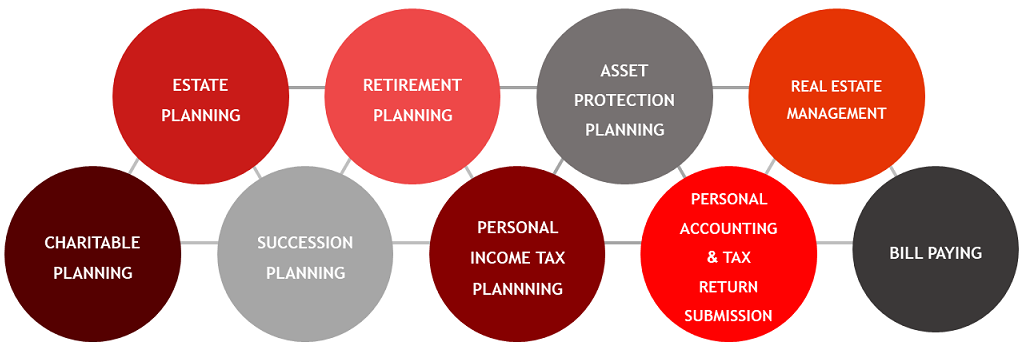

The Non-habitual tax resident (NHR) regime has been revoked with effect from January 1, 2024, onwards, as per the Portuguese Budget Law for 2024.
A grandfathering regime will be applicable as previously described. No further adjustments were introduced to this.
Concerning the new proposed material incentive regime there were a few adjustments. The ex-residents regime was also clarified.
Due to the approved amendments to the grandfathering regime those who are interested to move to Portugal under the NHR regime with effect to 2023 must take immediate action NOW:
The existing regime continues to be applicable, until the end of the initial 10-year period set out in the Portuguese Personal Income Tax (IRS) Code, counting from the date on which the taxpayer became resident in Portuguese territory:
a) To the taxpayer who, on December 31, 2023, is already registered as a non-habitual resident in the taxpayer register;
c) To the taxpayer who becomes a resident for tax purposes by December 31, 2024 and who declares, for the purposes of registering as a non-habitual resident, to have one of the following elements:
d) To the taxpayer who is a member of the household of the taxpayers referred to in the previous paragraphs.
For the purposes of the provisions of paragraphs c) and d) of the previous paragraph, the taxpayer must request registration as a non-habitual resident, electronically, on the Portuguese Tax Web Portal, after the act of registration as a resident in Portuguese territory, until March 31of the following year, by reference to the year in which he became resident in that territory.
In what concerns the new proposed material regime, there are a few adjustments, but we highlight, as of now, the following features:
a) Benefit or have benefited from the non-habitual resident regime;
b) Have opted for taxation under article 12-A (Program Return / Regressar) of the IRS Code.
a)I) developed in industrial and service companies, whose main activity corresponds to one of the CAE codes defined in a Ministerial Order and which export at least 50% of their turnover, in the year in which the corresponding duties started or in any of the two previous years.
The following activities (as an example) are encompassed as per a transitional Ministerial Order; i) IT consultancy and programming and related activities, ii) Information services activities (ex. data processing and web sites), iii) administrative and support service activities provided to companies.
a)II) developed in companies with relevant applications, in the year in which the corresponding duties started or in the five previous ones, which benefit or have benefitted from the ”Regime Fiscal de Apoio ao Investimento” (RFAI), in accordance with chapter III of the Investment Tax Code.
The RFAI is a tax benefit that allows companies to deduct from the tax collected a percentage of the investment made in fixed assets (tangible and intangible). However, the percentage allowed to be deducted differs according to the region in which the investment is made (Lisbon and Algarve are less attractive in this regard).
The mentioned legal regime defines the concept of startup as any company that; i) has been in operation for less than 10 years, ii) employs under 250 employees, iii) has an annual turnover of less than €50 million, iv) is not the result of a transformation or split from a large company, and no large company holds a direct or indirect majority stake in its capital, v) has its headquarters or permanent representation office in Portugal, or it employs at least 25 employees in Portugal, and vi) meets one of the following conditions: 1) It is an innovative company with high growth potential, innovative business models, products or services, and falls within the scope of Ordinance 195/2018 of July 5, or has been recognized as suitable for research and development (“R&D”) activities by the Portuguese National Innovation Agency or certified through the recognition process for technology sector companies, except for promotional, intermediation, investment, or real estate development companies; or 2) It has successfully completed at least one round of venture capital financing from a legally qualified venture capital investment entity supervised by the Portuguese Securities Market Commission (CMVM) or a similar international authority, or through equity or mezzanine instruments provided by investors who are not founding shareholders of the company; or 3) It has received investment from Banco Português de Fomento, S. A., or from funds managed by it, or from its subsidiaries, or from one of its equity or mezzanine instruments.
Ironically, the new regime set in the Proposal can potentially be more advantageous than the previous one for the qualified and employed groups of people that can benefit from it as foreign income is always exempt for all categories of income (i.e., employment income performed abroad, self-employment income performed abroad, foreign rental income, capital gains in foreign assets), with the exception of pension income, which is never exempt and will be taxed progressively up to a 53% tax rate.
As an exception, the law states that qualifying taxpayers that derive foreign income from a non-resident entity without a permanent establishment in Portugal, located in a country, territory, or region subject to a “favorable more advantageous tax regime” (i.e., a blacklisted tax haven) are subject to certain tax rules (for capital income and capital gains) that envisage an autonomous 35% rate.
This provision is not fully clear: i) does it disqualify all the non-blacklisted income from taxpayers that have blacklisted income from the benefit regime and taxes all the income of the taxpayers at 35%? ii) does it tax all the blacklisted income from taxpayers at 35%? iii) does it tax only the blacklisted capital income and gains from taxpayers at 35%? This point needs clarification.
In any case, the 35% autonomous tax rate conflicts with the Double Taxation Conventions entered into by Portugal with blacklisted tax havens, which force Portugal, at least, to grant a credit for the foreign tax paid. And, in our view, also conflicts with the European Union free movement of capital provisions, which should not enable a tax rate higher than 28%.
Since non-blacklisted foreign income is automatically exempt:
i. there should no longer be the need to interpret the Double Tax Treaties concluded between Portugal and the source country or the OECD Model Tax Convention and intertwine it with Portuguese source and NHR rules – which could potentially jeopardize the exemption. Portuguese domestic rules on income sourcing will determine what is foreign source income, which is a paradigm shift. This is currently a relevant issue when it comes to capital gains on securities as Portugal usually taxes such income – but with the approved amendments it will no longer do so;
ii. the scope of the exempted self-employment income is no longer limited as it does not need to derive from a High Value-Added activity. Of course, the scope of the beneficiaries was also narrowed, but this does not change the fact that any self-employment income earned performed abroad is exempt, while it currently has to derive from a High Value-Added activity to be so;
iii. employment income no longer needs to be subject to taxation in the source country in order for the exemption to apply.
This mandatory registration procedure will be regulated by a Ministerial Order that does not yet exist. Notwithstanding, regarding a) above, the new legal regime expressly states that, until the relevant Ministerial Order is approved, the mandatory registration should be made with the Tax Authorities via the Portuguese Tax Web Portal (“Portal das Finanças”); this will still imply small adjustments to it in order to be put it in practice, but the online registration procedure should be as streamlined as that of the current NHR regime. We are hopeful that this IT issue will be solved in January 2024.
Currently, there is a tax benefit in place for people who (i) became/become tax resident in Portugal from 2019-2023 (ii) have been previously tax resident in Portugal and left before a certain date; (iii) have not been tax resident in Portugal during the 3 years prior to the new residence; (iv) have their Portuguese tax obligations in good standing and (v) have not applied for the NHR regime.
Other current main features are:
The benefit changed with the Budget Law approval: (a) it lasts during a period of 5 years and (b) the 50% reduction of the taxable base is limited to the first € 250,000 of income from employment and self-employment income. It is still necessary to have the Portuguese tax obligations in good standing and not apply for the NHR. A Parliamentary amendment clarified that it is still necessary to have been resident in Portugal before; on the other hand, the applicant must not have been resident in Portugal during the 5 years prior to entry into this regime.
The Proposal foresees that the regime will only apply for those who move until the end of 2026.
With this being said, the “ex-residents” regime may be a viable option for newcomers obtaining employment or self-employment income either abroad or in Portugal.
RPBA is pleased to present this microsite on Family Office Services, one of our niche practice areas.
RPBA has been involved in their structuring and managing, either on the real estate or on the financial angle, by the use of holding and operational companies, trusts, private and family foundations, life insurance, wills, shareholders’ agreements and family protocols.
Due to the increasing demand for these services RPBA felt the need to create a microsite with specific materials on this subject.
Feel free to explore our Family Office microsite.
RPBA lawyers have an in-depth knowledge and expertise in Personal Residence Planning. Click here to learn more...
The Portuguese non-habitual tax resident regime enables a very attractive taxation for global High Net Worth individuals. Click here to learn more...
The Portuguese Golden Visa for non-EU investors grants access to the entire Schengen Area. Click here to learn more...
The Madeira Free Zone provides many interesting tax structuring opportunities. Click here to learn more...
Real Estate Tax Structuring is crucial on the acquisition of high-end real estate by non-Portuguese residents. Click here to learn more...
The “Family Office Report” states: “A family office is a 360 degree financial and wealth management firm and personal CFO for the ultra-affluent, often providing investment, charitable giving, budgeting, insurance, taxation, and multi-generational guidance to an individual or family”.
We favor a simpler, plain vanilla, definition: “A Family Office is an office for the management of family affairs”. From our experience the “wealth management” factor is the one most associated with Family Offices by the industry literature. However, there is a plethora of services that may be provided by a Family Office:
Single Family Offices cater for the needs of a single family, and are therefore privacy conscious and focused, providing tailor-made solutions, although they are generally more expensive to run. Multi-family offices serve several clients, and tend to provide economies of scale, more diversified services and increased pooling of know-how due to the experience of working with different families.
Virtual Family Offices spare the office element, being basically a self-managed network of outsourced professionals (accountant, lawyer, wealth manager, etc.). Traditional Family Offices have dedicated staff and are more brick and mortar in format, although sometimes their headquarters is just an office room inside a family member's home.
Most Family Offices are still top structured around one company, either holding or operational. However, most Family Offices develop non-profit(able) activities for the Family like life management or philanthropy. Therefore, the most flexible tools for Family Office umbrella structuring tend to be non-company ones: (i) The Family or Private Interest Foundation or Trust (for instance in Malta or in Liechtenstein); (ii) the Trust (for instance in Malta, Canada or the United States of America); (iii) Life Insurance (for instance in Luxembourg, Ireland and Switzerland).

There are many sound non-tax reasons to consider taking personal residence in Portugal.
The cherries on top of the cake are that:
the Portuguese Non-Habitual Tax Resident regime grants an exemption on foreign source income as well as a limited taxation on income deriving from high value added activities [for more information on this please read our Newsletter (English]);
In particular, the Portuguese Non-Habitual Tax Resident regime provides generous exemptions for foreign-sourced income and a reduced 20% rate for income from high value added activities.
Since 1 January 2004 close family (spouses, children, grandchildren, parents and grandparents) is exempt from Stamp Tax on gifts and inheritances.
Moreover, the disposal of foreign assets (even towards Portuguese residents) as well as, in certain cases, the disposal of Portuguese assets towards non-Portuguese residents, are not liable to this type of taxation.Finally, Portugal has no wealth tax.
When family residence is considered, Portugal also tends to rank well, being a great place to raise children, due to safety and to both good private or public pediatric healthcare. The fact that in the destinations most favored by expats, like Lisbon, Cascais-Estoril and Algarve, English is widely spoken by the Portuguese tends to facilitate foreigners’ integration, some being able to live decades without learning the native language.
Some of the drivers of personal residence may also prove to be key factors for HNWI that are moving to Portugal to consider locating part of their dedicated Family Offices here.
Portugal has relatively cheap real estate (although tax structuring is vital as this is an overtaxed sector), namely office space, an excellent telecommunication infrastructure and educated, qualified and affordable professionals. Its location at the south of Europe, in the tip of the Mediterranean Sea and bordering the Atlantic Ocean, as well the 300 daily flights from Portugal to foreign countries make it an ideal place for globetrotters.
Its several seaports and marinas and its Exclusive Economic Zone, a sea zone of 1,727,408 km2 (the 3rd largest of the European Union and the 11th largest in the world), as well as its 31 airports and aerodromes, make it a natural choice for recreational yachting and private jet travel.
Lawyers by definition have a fiduciary duty towards their clients. Lawyers are trained and ethically oriented by their Bar Associations to act at all times for the sole benefit and interest of their clients, not taking advantage of the position of vulnerability of those who trust them, and honouring the vesting of confidence, good faith and reliance in their aid, advice and protection.
Acting as trusted counsellors, lawyers are in many instances better aware of the family dynamics than anyone else and are therefore in a position to provide sound advice on issues like drafting the Family Constitution.
Lawyers on their own can perform many services in a Family Office context, namely providing legal and tax structuring and advice, but also reporting and record keeping, compliance and regulatory assistance, as well as, in many instances, real estate management (in particular of leased assets). Their role in carrying out the intent of the deceased tends to be crucial in ensuring the intergenerational wealth succession.
From our experience, the attorney-client traditional privilege and trust and the ability to avoid conflicts of interest and self-profit at the expense of his customer makes the lawyer a natural Family Officer, sometimes even a strong candidate for Chief Family Officer.
One of RPBA‘s expertise services is Family Offices. We are involved in their structuring and managing, both on the financial and real estate angles, by the use of holding and operational companies (namely in Portugal – in particular through the Madeira Free Zone –, Belgium, Luxembourg and Malta), trusts, private interest and family foundations (namely in Malta and Liechtenstein), life insurance, wills, shareholders’ agreements and family constitutions or protocols.
If you are interested in becoming a Client please e-mail us to communication@rpba.pt

Meet our dedicated team and our purpose on our Main Website.
You can reach us at
communication@rpba.pt
(+351) 212 402 743

Share this page